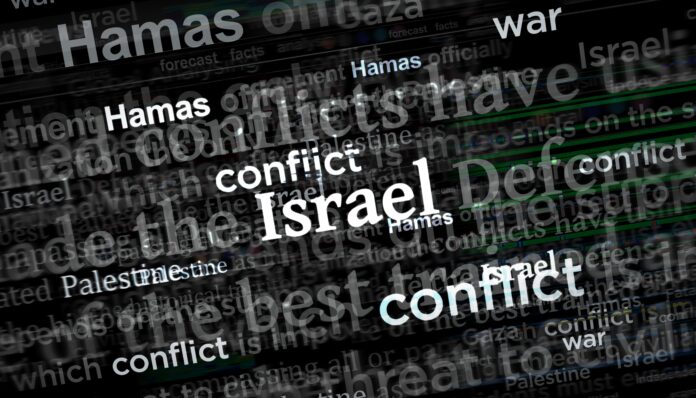Israel’s war against Gaza is an attempt to conduct genocide against the Palestinian people… Israel is an apartheid state, designed to privilege Jewish citizens at the expense of Palestinians… We stand firmly by Gaza’s people, victims of a genocidal war the United States government continues to fund and arm… Islamophobic political fervor and the widespread circulation of unsubstantiated claims has [sic] galvanized a US-led coalition of military support for a brutal campaign of violence.”
The above, grammar error and all, is part of a long harangue against Israel and the US by a group calling itself “Writers Against the War on Gaza.” It was published on October 26 as a letter with hundreds of signatures.
Two signatories were writers for The New York Times Magazine: Jazmine Hughes and Jamie Lauren Keiles. The magazine’s editor, Jake Silverstein, notified Ms. Hughes that her public stance had violated The Times’ newsroom policies and, he said, “we both came to the conclusion that she should resign.” Which she did. Shortly thereafter, so did Mr. Keiles.
Good riddance to both.
But before reading too much into the upgrade of the reporter pool at the “paper of record,” it’s worthwhile to note that it wasn’t the endorsement itself of the obnoxiousness and lies of the letter that led Ms. Hughes and Mr. Keiles to the door. It was only that they had run afoul of what Mr. Silverstein characterized as “The Times’ policy on public protest.”
As Times editors Carolyn Ryan and Susan Wessling reminded staff in an email obtained by The Algemeiner, “when Times journalists, however well-meaning, join public pronouncements about the war, it risks creating the perception that we are joining a side or putting ourselves in the middle of the story.”
So, had the sentiments of the signatories to the odious epistle become known only to editors, or even, presumably, had been voiced in the newsroom—assuming that proclamations to colleagues fall short of “public protest”—there would have been no grounds for asking the signers to seek employment elsewhere.
That’s a problem.
Because the letter had not merely, as The Times’ own article that reported on the resignations had it, “voiced support for Palestinians and protested Israel’s siege in Gaza.” It had sought to spread demonstrable and malignant lies.
Opposing Israel’s decision to try to destroy Hamas is, if wrongheaded, an arguable position. Calling it “genocide against the Palestinian people” is a demonstrable and malignant lie.
Opposing Israel’s checkpoints in Yehudah and Shomron, while being cavalier about Israelis’ security—and expressing that opinion at a safe distance from Jenin-based terrorists—doesn’t bespeak anti-Semitism. Characterizing such security moves as evidencing “an apartheid state” is a demonstrable and malignant lie.
Opposing US aid to Israel is a position that, unwise and self-defeating as it is, has been promoted by some members of Congress. Attributing such aid to help Israel protect her citizenry to “Islamophobic political fervor” and “unsubstantiated claims” is a demonstrable and malignant lie.
That people harboring such lies, as long as they refrain from shouting them from the rooftops, can be considered objective recorders of events for an all-too-often pliable public is more than unwise or misguided. It is a disgrace. The one that lies at the heart of what passes today for journalism.
Another reporter, this one a freelance photographer who had been absent from The New York Times’ pages for a while but who has resurfaced during the current war, is Palestinian filmmaker Soliman Hijjy.
A Times spokesperson explained the paper’s decision to rehire Hijjy.
“We reviewed problematic social media posts by Mr. Hijjy when they first came to light in 2022 and took a variety of actions to ensure he understood our concerns and could adhere to our standards if he wished to do freelance work for us in the future.”
“Mr. Hijjy,” the spokesperson continued, “followed those steps and has maintained high journalistic standards.”
What were the “problematic” posts? In 2012, on Facebook, Mr. Hijjy posted a photoshopped image of Hitler, ym”sh, with the comment, in Arabic, “How great you are, Hitler.”
And in 2018, using the same medium, he shared a photo of himself with the caption, in Arabic and translated by HonestReporting: “In a state of harmony, as Hitler was during the Holocaust.”
But Mr. Hijjy has removed those posts, and so, presumably, has been judged in compliance with The Times’ rules.
To read more, subscribe to Ami





















